The Second NOWPAP Workshop on Marine Litter was held on March 28-29, 2007 in Toyama, Japan.
Nineteen presentations were made by the researchers from the NOWPAP Member States (China, Japan, Korea, and Russia), NOWPAP staff and FAO/UNEP Consultants, including a keynote speech and a special lecture. A large number of audiences, around 90 people participated in the workshop.
1. Objectives
In response to the growing scale and importance of the marine litter problem, NOWPAP began its Marine Litter Activities (MALITA) in 2006, and is currently promoting various studies to support the efforts of NOWPAP member states to address marine litter in the Sea of Japan, Yellow Sea and their coastal areas. The goal of these activities is to develop a regional action plan for marine litter management in the NOWPAP member states by this autumn.
This workshop was held as part of the MALITA project, and the aim was to bring together experts from the NOWPAP member states and related international organisations to introduce good practices in marine litter countermeasures that are already being implemented, to discuss effective response measures, and to contribute to the development of a regional action plan.
2. Participating Organizations
(1) Organizers:
NOWPAP/CEARAC
(2) Sponsors:
Ministry of the Environment, Japan
Northwest Pacific Region Environmental Cooperation Center (NPEC)
(3) Supporters:
Toyama Prefecture, Toyama City, NOWPAP RCU, Coordinating Body on the Seas of East Asia (COBSEA),
Japanese Association for Coastal Zone Studies (JACZS), Japan Driftological Society, Japan Society of
Waste Management Experts (JSWME), The Oceanographic Society of Japan
3. Program
|
March 28 13:00~18:25 |
(1) Opening Ceremony (2) Keynote Speech: (3) Special Lecture: (4) Session 1: Countermeasures against marine litter (5) Session 2: Reduction and prevention of marine litter |
|
March 29 9:00~16:30 |
(6) Session 3: Fisheries-related marine litter in the NOWPAP Region (7) Session 4: Coastal Cleanup and marine litter monitoring (8) Session 5: Marine litter management policies and systems (9) Session 6: Regional actions against marine litter |
4. Result
Through the workshop, participants shared information on:
(1) countermeasures implemented in specific areas;
(2) the reduction and prevention efforts implemented in each country;
(3) countermeasures against fisheries-related marine litter;
(4) coastal cleanup;
(5) marine litter management policies and systems;
(6) regional actions against marine litter, including in the neighbouring COBSEA Region.
In the discussions of each session, participants actively exchanged opinions in the pursuit of more effective
ways to solve marine litter problems. The information and opinions shared at this workshop
help develop a Regional Action Plan on marine litter in the NOWPAP Region.
5. Report
“Report on the Second NOWPAP Workshop on Marine Litter”
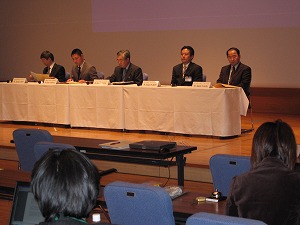
Opening Ceremony
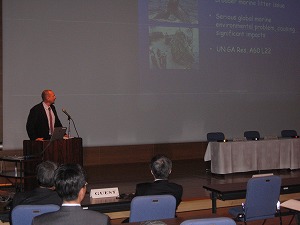
Keynote Speech
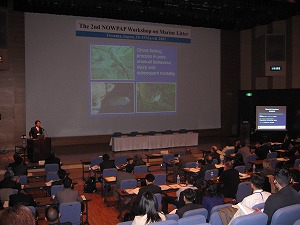
Special Lecture
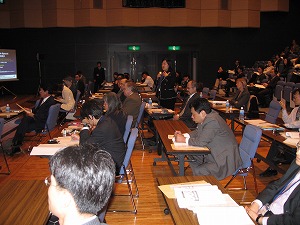
Discussion at the workshop
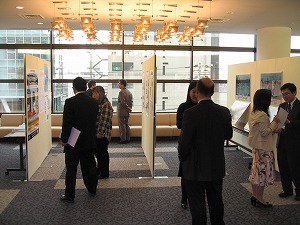
Posters and other displays
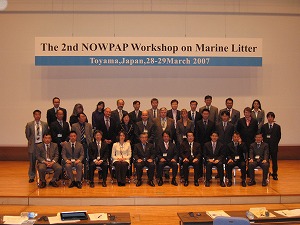
Participants in the workshop

